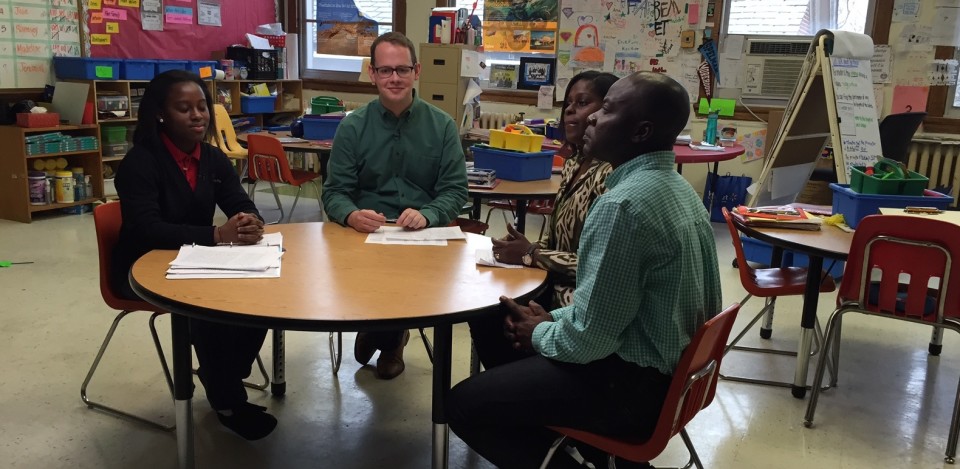Student-Led Conferences (SLCs) in secondary schools effectively allow students to have a voice in sharing their academic progress. They provide a unique opportunity for students, families, and teachers to discuss students’ academic progress and develop concrete action steps to support the student’s academic success.
Student-Led Conferences replace traditional parent teacher conferences and are led by the student, rather than the teacher. In addition to engaging parents in the academic progress of their child, SLCs allow older students to reflect on their academic performance, set goals, and advocate for the support they need to meet these goals. This empowers secondary students to take ownership of their education, becoming independent, self-reflective learners.
The SLC model supported by Flamboyan was developed by educators at Washington Heights Expeditionary Learning School (WHEELS)[1].
What Research Has Proven
In 2004, a research study published in the School Community Journal, investigated the impact of SLCs at four middle schools in Washington, Texas, California, and Oregon[2]. At each of these schools, SLCs replaced traditional parent teacher conferences. After at least two years of implementation, the study found that:
- All participating schools reported improved state standardized test scores after implementing SLCs.
- All four schools reported a decline in disciplinary problems.
- Teachers reported that they planned lessons and unit more purposefully.
- Parent participation in SLCs increased to a 92% minimum in all four schools.
- Over 94% of students reported that they revised and edited their work; 58% of the students reporting that they always did this and 36% indicating that they do this as a result of participating in SLCs.
- Over 90% of students reported that they set goals for their work; 49% reporting that they always did this and 43% have done this as a result of the SLCs.
- The schools reported a positive school environment and diffused parent-teacher conflicts.
[1] http://schools.nyc.gov/NR/rdonlyres/D9B1DAF6-07FA-4B4B-90B6-4E156092CD70/0/WHEELSPPLNarrativeStudentLedConferencesFINAL.pdf
[2] http://eric.ed.gov/?id=EJ794832





